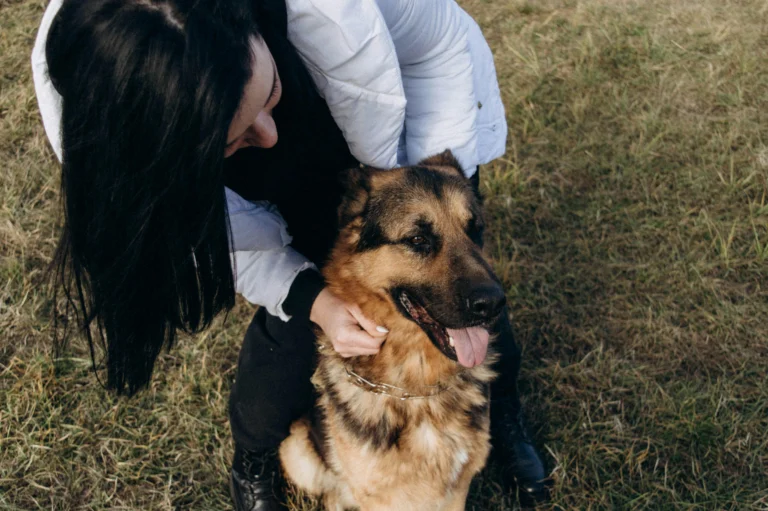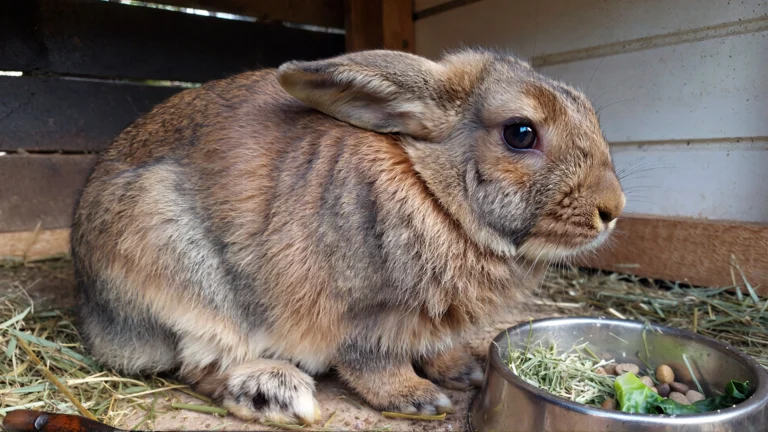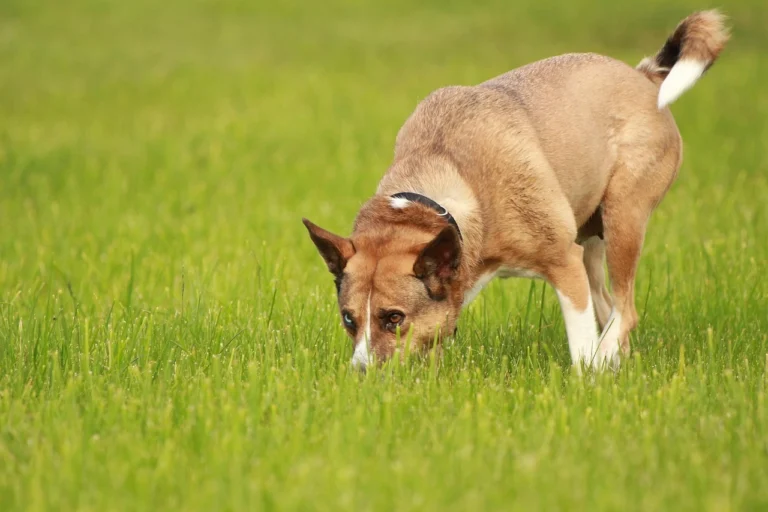How to Keep Senior Dogs Healthy
Introduction: How to Keep Senior Dogs Healthy
As your dog enters its senior years, its needs change dramatically. Learning how to keep senior dogs healthy means understanding their physical, emotional, and nutritional shifts. Just like humans, older dogs thrive with a little extra care. This guide dives into seven actionable daily habits that can add vitality to your dog’s golden years while boosting its overall quality of life.
1. Provide Age-Appropriate, Nutritious Food
Why Diet Matters for Older Dogs
A major part of learning how to keep senior dogs healthy is focusing on the food they eat daily. Aging dogs, much like aging humans, experience changes in their metabolism, digestion, and hunger levels. Their bodies require fewer calories but more targeted nutrients to maintain health, strength, and comfort in their later years.
Tailor the Diet to Their Aging Body
Senior dog food isn’t just a marketing label it’s specially formulated to meet the needs of older pets. These diets often contain fewer calories to prevent weight gain, but are rich in essential nutrients like lean protein, vitamins, and minerals. Ingredients such as omega-3 fatty acids help reduce inflammation, while glucosamine supports joint health.
When considering how to keep senior dogs healthy, always avoid low-quality fillers, artificial additives, and excessive fat. Instead, opt for recipes with real meat, brown rice, sweet potatoes, and added supplements that support immune and joint function. Fiber-rich ingredients also help improve digestion, which tends to slow down with age.
Make Mealtime Easier and Healthier
As they age, some dogs find it difficult to chew dry food or may show little interest in meals. To keep your senior dog engaged, try softening meals with water or serving nutrient-rich wet food. You can also break meals into smaller portions throughout the day to ease digestion and maintain energy levels.
Ensuring your dog stays hydrated is just as important as the food itself. Always provide fresh water, especially if they’re on dry food.
To sum up, understanding how to keep senior dogs healthy starts with the right nutrition. Feeding them thoughtfully and adjusting their diet as they age can dramatically improve their quality of life and longevity.

2. Maintain Regular and Gentle Exercise
Movement Is Key to Longevity
When thinking about how to keep senior dogs healthy, regular exercise plays a major role. Older dogs might slow down, but that doesn’t mean they should become inactive. Maintaining consistent, low-impact physical activity is one of the best ways to keep aging dogs agile, happy, and mentally alert.
Choose Age-Appropriate Activities
As dogs age, their joints become more sensitive and they tire more easily. Instead of intense runs or rough play, aim for shorter, slower-paced walks. Gentle strolls twice a day help keep muscles toned, support joint function, and aid digestion. If your dog enjoys swimming, it’s an excellent low-impact option that reduces pressure on joints while still offering great exercise.
Interactive games like hide-and-seek or soft toy fetch can keep older dogs engaged without overwhelming them. It’s important to adjust the pace and intensity to match your dog’s abilities, especially if they have arthritis or mobility challenges.
Watch for Signs of Fatigue or Discomfort
Knowing how to keep senior dogs healthy includes learning to read their body language. Reluctance to move, limping, or stiffness could signal that your dog needs a gentler or revised exercise routine. Always provide a soft resting area after activity and allow time for recovery.
Before starting a new exercise plan, consult your vet to rule out any underlying health conditions. They may recommend specific exercises that benefit your dog’s breed, weight, or medical needs.
3. Keep Their Mind Active and Engaged
Mental Stimulation Is Just as Important
If you’re wondering how to keep senior dogs healthy, don’t overlook their cognitive needs. As dogs age, their mental sharpness can fade, leading to confusion, restlessness, or even canine cognitive dysfunction (similar to dementia in humans). Just as their bodies need exercise, senior dogs’ minds benefit from regular mental stimulation.
Use Puzzles, Games, and Daily Interaction
Interactive toys and puzzle feeders are excellent tools for keeping older dogs mentally engaged. They spark problem-solving skills while keeping your pet entertained. Treat-dispensing toys, for example, not only offer mental challenges but also slow down eating, supporting digestive health.
Rotating toys weekly or hiding treats around the house adds a playful element to your dog’s routine. These simple strategies not only stimulate their brain but also reinforce positive behavior.
Training isn’t just for puppies. Older dogs benefit from learning new commands or refreshing old ones. Make sessions rewarding and brief, emphasizing a gentle approach. This builds confidence and helps maintain memory function, two crucial parts of how to keep senior dogs healthy, both mentally and emotionally.
Engage With Your Dog Every Day
One-on-one interaction is key. Talking to your dog, brushing their coat, or involving them in daily activities like gardening or short errands can help them feel connected. Even just a few minutes of focused attention each day can lift their mood and provide vital mental stimulation.
Incorporating mental enrichment into your dog’s daily life is one of the most effective strategies for how to keep senior dogs healthy. It reduces stress, sharpens their senses, and can even delay the effects of cognitive aging.
4. Schedule Regular Vet Checkups
Preventive Care Is Essential
A core part of how to keep senior dogs healthy is being proactive about their healthcare. Older dogs are more vulnerable to developing chronic conditions, many of which can go unnoticed without regular veterinary visits. Scheduling checkups every six months rather than just annually gives your vet the opportunity to catch issues early, when treatment is most effective.
Monitor Key Health Indicators
During a senior wellness exam, your vet will assess more than just weight and temperature. They’ll often run bloodwork, check kidney and liver function, examine dental health, and look for signs of arthritis or cognitive decline. These evaluations are essential for understanding how to keep senior dogs healthy as they age and begin to face new health challenges.
Regular checkups also ensure your dog’s vaccinations and parasite prevention are up to date, which is especially important for aging immune systems. Early detection of problems like heart disease, diabetes, or cancer can make the difference between manageable care and life-threatening complications.
Keep a Log and Ask Questions
Before each visit, take note of any changes in behavior, eating habits, or mobility. Even small signs like increased thirst, excessive panting, or reluctance to climb stairs could signal something deeper. Bring your notes to the vet and ask about adjustments in diet, supplements, or activity levels.
Understanding how to keep senior dogs healthy involves partnership with your vet and your pet. Regular checkups create a health timeline and help you stay ahead of any age-related issues. Combined with proper nutrition, exercise, and mental stimulation, consistent veterinary care forms the backbone of a happy, healthy senior dog life.

5. Create a Safe Home Environment
Comfort and Safety Go Hand-in-Hand
When considering how to keep senior dogs healthy, the home environment plays a critical role. As dogs age, they may experience joint stiffness, declining vision, or reduced coordination. Making thoughtful adjustments in your home can significantly reduce their risk of injury and stress, allowing them to enjoy their golden years in comfort.
Eliminate Hazards and Support Mobility
Floors like tile or hardwood can be dangerous for older dogs due to their lack of traction. One of the simplest ways to help is by adding non-slip mats or rugs in areas where they frequently walk. If your dog struggles with stairs or high furniture, consider ramps or pet stairs to minimize joint strain and prevent falls.
A cozy, orthopedic bed placed in a quiet, draft-free corner can provide relief from sore joints and support restful sleep. This small change alone can have a powerful impact on how to keep senior dogs healthy and pain-free.
Avoid rearranging furniture too often, especially if your dog has limited vision. When surroundings are consistent, dogs feel more secure and are less likely to have accidents.
Make Everyday Tasks Easier
Raising food and water bowls to shoulder height can reduce strain on the neck and spine. Keep things like food, water, toys, and bedding within easy reach to prevent your dog from having to climb or overexert themselves.
Older dogs may also need more frequent potty breaks, so make sure the path to the door is free of clutter and easy to follow, even at night.
Creating a safe space tailored to your senior dog’s changing needs is a crucial step in understanding how to keep senior dogs healthy. With a few practical updates, you can help them stay mobile, confident, and secure at home.
6. Watch for Behavioral and Health Changes
Early Signs Matter
If you want to master how to keep senior dogs healthy, paying close attention to subtle changes in their behavior or habits is vital. Dogs are experts at hiding pain or discomfort, especially as they age. By observing small shifts in routine, mood, or activity, you can catch potential health problems before they become serious.
Know What to Look For
Is your dog sleeping more than usual? Do they seem disinterested in eating or unwilling to go up the stairs? These signs might seem minor, but they can point to issues like arthritis, dental disease, or early-stage organ problems. Other common red flags include increased thirst, frequent urination, bad breath, and restlessness at night.
Changes in behavior, such as confusion, anxiety, or irritability, can also signal cognitive decline. One key strategy in how to keep senior dogs healthy is recognizing that mental changes are just as important as physical ones. If your dog begins wandering, seems disoriented, or forgets familiar commands, it may be time to talk to your vet about cognitive health.
Keep a Health Journal
Tracking your dog’s habits daily or weekly can help you spot patterns over time. Watch for any differences in their eating habits, sleep, activity level, or mood. This record will also be helpful for vet visits, offering a clearer picture of what’s normal versus what’s new.
Being proactive about noticing and reporting changes is a powerful tool in how to keep senior dogs healthy. The sooner a problem is identified, the more options you’ll have to treat it effectively and keep your pet comfortable.

7. Provide Emotional Support and Companionship
Emotional Health Is Physical Health
As you focus on keeping your senior dog healthy, don’t overlook the importance of their emotional well-being. Aging dogs may feel more vulnerable as their senses dull and their energy declines. Your companionship provides comfort, reduces anxiety, and supports overall wellness during this sensitive life stage.
Maintain a Calm and Predictable Routine
Senior dogs thrive on consistency. Regular feeding times, gentle walks, and predictable daily routines can ease anxiety and give your pet a sense of security. Loud noises, sudden changes, or long periods of isolation can be stressful for older dogs, potentially impacting their health.
Spending quality time together each day, whether it’s brushing their coat, offering soft belly rubs, or simply sitting nearby, helps reduce loneliness and boosts your dog’s mental health. Your voice and touch become powerful tools for reassurance.
One of the best ways to understand how to keep senior dogs healthy is by recognizing how much they value presence and affection, even more than play or treats, as they age.
Avoid Emotional Neglect
Older dogs can easily feel left out, especially in busy households or when there’s a new puppy in the home. Be intentional about spending one-on-one time with them. Speak to them gently, involve them in calm family activities, and celebrate the little things they can still enjoy.
Monitor their reactions to visitors or new situations. Some senior dogs become more sensitive or anxious with age and may need extra comfort during loud events or unfamiliar changes.
Providing love and companionship is more than just kindness, it’s a vital strategy in how to keep senior dogs healthy, happy, and emotionally balanced through their golden years.
Conclusion: Aging Gracefully Together
Learning how to keep senior dogs healthy isn’t about one quick fix, it’s about creating a lifestyle filled with compassion, structure, and proactive care. From feeding them age-appropriate food and scheduling regular vet checkups to keeping their minds sharp and homes safe, every small action adds up to a longer, more joyful life for your aging companion.
Senior dogs require more than just basic care; they thrive on routine, emotional support, and consistent observation. By staying in tune with both physical and behavioral changes, you can respond to health concerns early and adjust your routine as needed. That’s the true foundation of how to keep senior dogs healthy, staying engaged, attentive, and deeply connected to their changing needs.
Keep in mind, your connection with your dog only grows stronger with age. Offering patience, love, and mindful care ensures that their later years are filled with comfort, dignity, and happiness. You are their entire world, and by making their health a priority, you’re giving them the gift they’ve always given you: unconditional love.
Now that you understand how to keep senior dogs healthy, you’re better prepared to walk beside them through this beautiful chapter of life, one paw step at a time.
FAQs – How to Keep Senior Dogs Healthy
Q1: What’s the most effective way to keep senior dogs in good health?
The most effective way to keep senior dogs healthy is by combining proper nutrition, regular vet visits, daily mental engagement, and a safe, calm environment. Each dog is different, but a holistic approach that covers both body and mind is essential for long-term wellness.
Q2: Should I change my dog’s diet as they get older?
Yes. Older dogs benefit from diets designed for their age group. These foods typically contain fewer calories, higher-quality proteins, and ingredients that support joints and digestion. Adjusting their food is a simple but important step in how to keep senior dogs healthy as their metabolism and energy levels shift.
Q3: What are the signs that my senior dog might be in pain?
Watch for signs like limping, difficulty standing, reduced activity, irritability, or changes in eating and sleeping habits. Dogs may not cry out when hurting, so being alert to these signs is key to how to keep senior dogs healthy and comfortable.
Q4: Does daily exercise still matter for older dogs?
Absolutely. Regular but gentle movement helps maintain muscle tone, joint flexibility, and mental alertness. Short walks, slow play, and swimming can all support how to keep senior dogs healthy without overexerting them.
Q5: How do I provide emotional support for my aging dog?
Senior dogs often feel more secure with routine and reassurance. Spend quality time with them, maintain a predictable schedule, and avoid stressful changes. Emotional support is a major part of how to keep senior dogs healthy and happy in their later years.








I think this is one of the most vital information for me. And i am glad reading your article. But should remark on some general things, The site style is great, the articles is really excellent : D. Good job, cheers
so much superb information on here, : D.
Really Appreciate this article, can you make it so I receive an update sent in an email every time there is a fresh update?
I really enjoy examining on this internet site, it contains great content. “One doesn’t discover new lands without consenting to lose sight of the shore for a very long time.” by Andre Gide.
I like this weblog so much, saved to bookmarks.
youre welcome
Hola! I’ve been following your web site for a long time now and finally got the bravery to go ahead and give you a shout out from Dallas Texas! Just wanted to tell you keep up the good job!
Hello, you used to write magnificent, but the last few posts have been kinda boring?K I miss your tremendous writings. Past few posts are just a little bit out of track! come on!
I am not very great with English but I find this rattling easy to interpret.
I’ve been absent for some time, but now I remember why I used to love this website. Thanks, I will try and check back more often. How frequently you update your website?
Valuable info. Lucky me I found your site by accident, and I am shocked why this accident didn’t happened earlier! I bookmarked it.
With havin so much content and articles do you ever run into any problems of plagorism or copyright violation? My website has a lot of completely unique content I’ve either created myself or outsourced but it looks like a lot of it is popping it up all over the internet without my permission. Do you know any methods to help stop content from being ripped off? I’d truly appreciate it.
You really make it appear so easy together with your presentation however I find this matter to be actually something that I believe I would never understand. It kind of feels too complex and extremely huge for me. I’m taking a look forward for your next post, I¦ll try to get the grasp of it!
I am glad to be a visitant of this staring site! , thankyou for this rare information! .